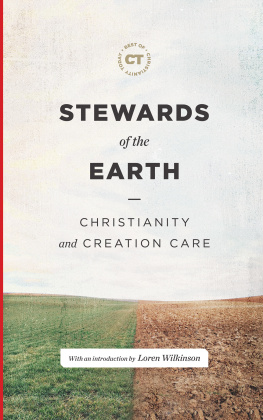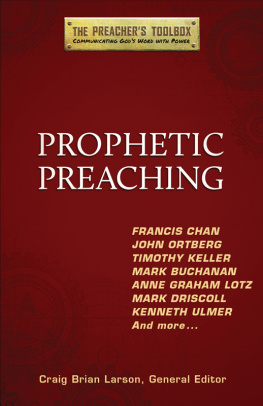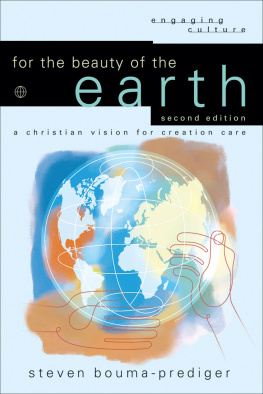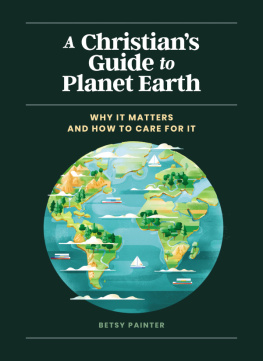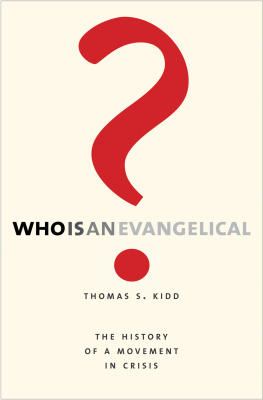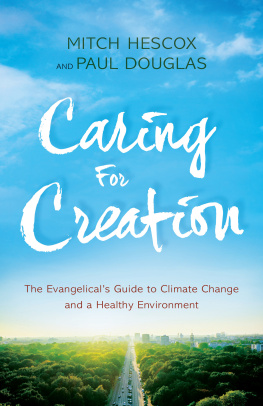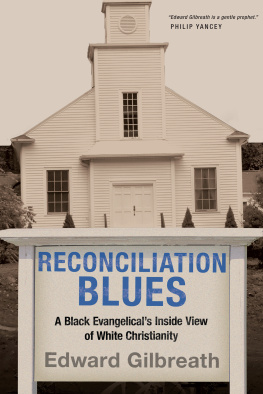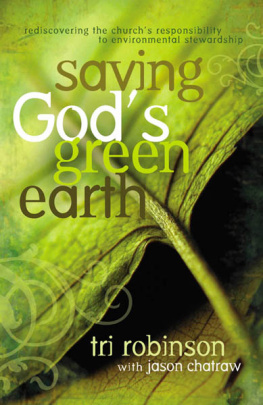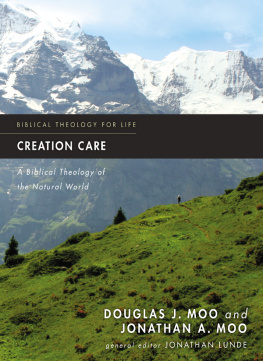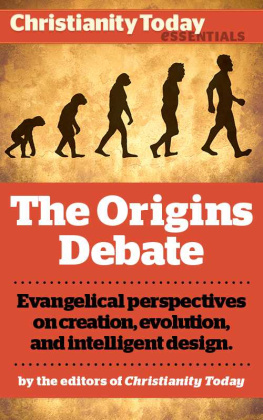
STEWARDS OF THE EARTH
Christianity and Creation Care

Stewards of the Earth: Christianity and Creation Care
Best of Christianity Today
Copyright 2022 Christianity Today International
Lexham Press, 1313 Commercial St., Bellingham, WA 98225
LexhamPress.com
You may use brief quotations from this resource in presentations, articles, and books. For all other uses, please write Lexham Press for permission. Email us at .
Wendell Berry, The Peace of Wild Things from New Collected Poems. Copyright 2012 by Wendell Berry. Reprinted with the permission of The Permissions Company, LLC on behalf of Counterpoint Press, counterpointpress.com.
Scripture quotations marked (NRSV) are from the New Revised Standard Version Bible, copyright 1989, National Council of the Churches of Christ in the United States of America. Used by permission. All rights reserved.
Scripture quotations marked (NIV) are from the Holy Bible, NEW INTERNATIONAL VERSION. Copyright 1973, 1978, 1984, 2011 by Biblica, Inc. Used by permission. All rights reserved worldwide.
Scripture quotations marked (ESV) are from ESV Bible (The Holy Bible, English Standard Version), copyright 2001 by Crossway Bibles, a publishing ministry of Good News Publishers. Used by permission. All rights reserved.
Scripture quotations marked (KJV) are from the King James Version. Public domain.
Scripture quotations marked (Message) are from THE MESSAGE. Copyright by Eugene H. Peterson 1993, 1994, 1995, 1996, 2000, 2001, 2002. Used by permission of Tyndale House Publishers, Inc.
Scripture quotations marked (NASB) are from the New American Standard Bible. Copyright 1960, 1962, 1963, 1968, 1971, 1972, 1973, 1975, 1977, 1995 by The Lockman Foundation. Used by permission.
Scripture quotations marked (NEB) are from the New English Bible. Copyright 1970 by The Delegates of the Oxford University Press and the Syndics of the Cambridge University Press. Used by permission.
Scripture quotations marked (NIV84) are from the HOLY BIBLE, NEW INTERNATIONAL VERSION. Copyright 1973, 1978, 1984 by International Bible Society. Used by permission of Zondervan. All rights reserved.
Scripture quotations marked (RSV) are from the Revised Standard Version of the Bible, copyright 1952 [2nd edition, 1971] by the Division of Christian Education of the National Council of the Churches of Christ in the United States of America. Used by permission. All rights reserved.
Scripture quotations marked (WNT) are from the Weymouth New Testament. Public domain.
Print ISBN 9781683595816
Digital ISBN 9781683595823
Library of Congress Control Number 2021947077
Lexham Editorial: Elliot Ritzema, Abigail Stocker, Kelsey Matthews
Cover Design: Lydia Dahl, Brittany Schrock
CONTENTS
by Loren Wilkinson
Loren Wilkinson
O ver the last half century we humans have become gradually aware that our presence is damaging the overall health of the planet. The articles, interviews, and editorials in this book provide an overview of the way evangelical Christians in America have responded to that awareness. They reflect attitudes which are variously insightful, inspiring, and obtuse. Together they reveal both complex tragedies and deep reasons for hope.
One can read them in several ways. One way is to see them mainly as a good sampling of the whole cultures response. At first, they are both alarmist and superficial. The first, a 1970 editorial warning that we have failed in our cultural mandate to exercise proper dominion, takes seriously a speculation that life on the planet could be over in thirty-five years (that was over fifty years ago!), and suggests that environmental destruction may be Gods way of bringing about the end times. That editorial stresses things like litter, dirty rivers, and crowded campgrounds, but only after a couple of decades does the real seriousness of the problem begin to sink in. The first mention of climate change is Bill McKibbens 1995 article about Christmas, TV, and consumerism. Subsequent articles, while backing off from predictions about the end of the world, reflect the realization that the environmental movement is no passing fad but an unavoidable warning that our civilization must change.
Another way to read the articles is as a portrait of the particular concerns of American evangelical culture. While the first editorial sounds an alarm, the second, published just before the first Earth Day in 1970, sounds a warning. Titled it (like many of the early articles) strongly disagrees with historian Lynn Whites influential 1967 case that Christianity bears a huge burden of guilt for environmental problems. And it points out that the ranks of environmentalists are filled with pagans, pantheists, and other heretics.
Evangelical preoccupations show up in other ways as well. A 1971 editorial, , callswiselyfor Christian values to resist excessive consumption but uses the need to establish that objective ethic as a way of revisiting one of the theological disputes of the time: Neo-orthodoxy grew out of existentialism, and contextual ethics was a consequence of the theological priority given to subjective, personal encounter. This, in turn, has encouraged exploitation. The subtext implies a direct line from Kierkegaard to Barth to consumerism.
Other distinctly evangelical concerns are evident. A 1990 article by Kim Lawton asks, organizations some evangelicals support are, almost without exception, in favor of abortion as a way of limiting population control. The article points out the ironic tension, still unacknowledged by the larger environmental movement, between supporting the casual destruction of pre-natal human life, on the one hand, and a passionate concern for non-human life on the other.
Several of the other articles also defend the unique value of human life against a movement that sometimes suggests that humans are only a problem for the planet. For example, a 2009 editorial objects to favoring animal needs over human needs, and argues that we can be speciesists and [still] show compassion for animals. Valid as these concerns are, they do show a tendency to regard abortion as the only absolute evil, and to minimize environmental damage.
That early article on abortion points to one of the tragedies evident in the collection, second only to the planetary tragedy the articles respond to: the growing polarization in American culture. That dichotomy puts evangelical Christians, united in their suspicion of science and their opposition to abortion, on one side of a great divide, and on the other side are environmentalists, pagans, new-agers, and most scientists.
Its clear that CT is trying to bridge that divide. Andy Crouch (in editors, while acknowledging lack of evangelical consensus on climate change, as on many other issues, conclude, lets stop questioning each others evangelical credentials and just do the work we believe God has called us to. They make clear that part of that workanother crucial moral issueis the care of creation.
Nevertheless, that 2007 editorial is an ominous anticipation of a divide that has become much more pronounced. The very term evangelical has become so politicized that some Christians refuse to use it. Andrew Spencer describes that divide in a 2017 article, . It was written in response to the newly elected president Trumps withdrawal from the Paris climate agreement, and the overwhelming evangelical support of both Trump and his anti-environmental policies. He identifies three reasons for that evangelical opposition: (1) the widespread acceptance of the Lynn White thesis, which sees Western Christianity as a major source of the crisis; (2) the environmentalist/abortion link; and (3) a perceived leftward theological drift in environmentally involved Christians. And though Spencer makes it clear there are powerful biblical reasons for Christians to care for the earth, he doesnt hold out much hope for a reversal of the situation.

